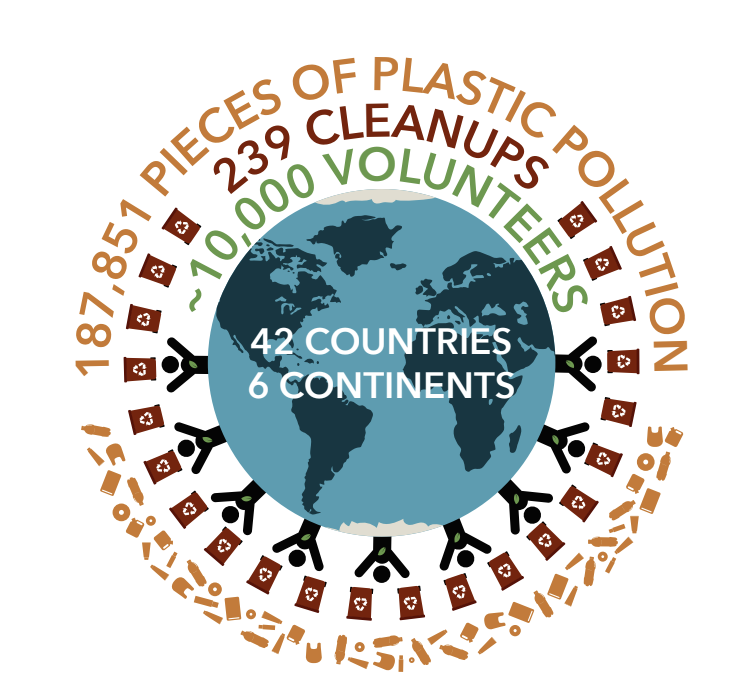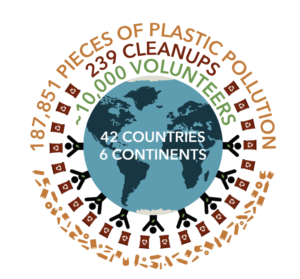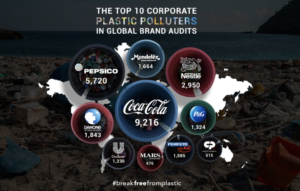
Break Free from plastic
Unless companies move away from their reliance on fossil-fuel based plastic for their products, we are looking at a climate-challenged future awashed in plastic pollution with untold repercussions on human health and life on the planet as we know it.
 This massive citizen action against big corporate plastic polluters have yielded the following numbers: 187,851 pieces of plastic trash collected in 239 cleanups and audits in 42 countries across 6 continents.
This massive citizen action against big corporate plastic polluters have yielded the following numbers: 187,851 pieces of plastic trash collected in 239 cleanups and audits in 42 countries across 6 continents.
While our brand audits do not provide a complete or definitive picture of the plastic pollution footprints of companies, they provide an evidence-based snapshot or indication of the most visible plastic polluters that people are finding in the beaches, parks, and in their own localities.
The results of this latest set of brand audits are featured in our consolidated report Branded: In Search of the World’s Top Corporate Polluters vol. 1 and they reveal that among the world’s most prolific and polluting brands are multinational companies namely Coca-Cola, PepsiCo, Nestlé, Danone, Mondelez International, Procter & Gamble, Unilever, Perfetti van Melle, Mars Incorporated, and Colgate-Palmolive.
In fact, the top three companies alone (Coca-Cola, PepsiCo, and Nestlé) accounted for 14% of the branded plastic pollution found in the six regions where the audits were conducted.
These same companies whose products are often packaged in throwaway, non-recyclable plastic are the same companies that have been exposed in our earlier brand audits in Southeast Asia and India. Their marketing and packaging decisions have burdened communities and local governments with waste materials that can neither be composted or recycled. These companies are aware that most developing countries lack the resources and wherewithal to handle problematic types of plastic waste in their systems. Yet they continue to churn out the stuff along with their products, flooding markets in the global South, hoping that millennials will continue to be mesmerized by the promise of convenience that throw-away plastic represents.
Instead of investing in alternative delivery systems, product redesign, or materials that avoid the problems associated with plastics to begin with, the same companies continue to push for quick fixes or controversial methods of recycling (mostly downcycling) and/or waste recovery (aka incineration) to promote business as usual and justify the continuing production of plastics.

These are neither viable nor sustainable solutions, inasmuch as they only deepen our dependence on fossil fuels and reinforce the throw-away mentality. The real solutions lie in measures and policies that will reduce, if not eliminate, the use of problematic and throw-away plastic packaging for products. This is the real innovation challenge that companies urgently need to take on.
What do you think?